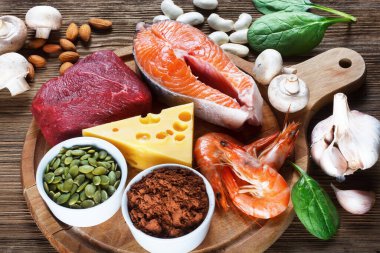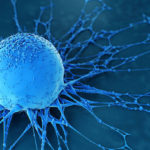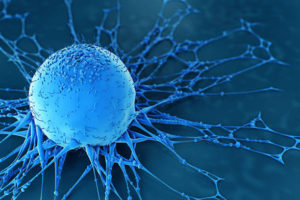Zinc Deficiency: Recognizing Symptoms, Daily Requirements, and Benefits
In the vast landscape of essential nutrients, zinc stands out as a crucial player for maintaining overall health. Despite its significance, zinc deficiency is relatively common, often overlooked, and can lead to a host of health issues.
That said, let’s look at the symptoms of zinc deficiency, the daily requirements, and the numerous benefits of ensuring adequate zinc intake.
Understanding Zinc and Its Importance
Zinc is a trace mineral that is vital for many physiological functions. It is involved in DNA synthesis, cell division, protein synthesis, and immune function.
In addition, zinc plays a role in wound healing, taste and smell, and enzymatic reactions. Given its multifaceted role, zinc is indispensable for growth and development, particularly during pregnancy, childhood, and adolescence.
Symptoms of Zinc Deficiency
Zinc deficiency can manifest in various ways, often depending on the severity of the deficiency. Here are some common symptoms to watch out for:

Weakened Immune System: Zinc is essential for immune function. A deficiency can lead to a higher susceptibility to infections and illnesses, such as colds and respiratory infections.
Hair Loss: Zinc is crucial for cell growth and repair, including hair follicles. A deficiency can result in hair thinning or loss.
Skin Problems: Skin issues, including acne, eczema, and delayed wound healing, can be indicative of zinc deficiency. The mineral is necessary for maintaining the skin’s integrity and function.
Loss of Appetite: Zinc influences taste and smell, and a deficiency can lead to a reduced sense of taste and smell, resulting in loss of appetite.
Growth Retardation: In children, zinc deficiency can lead to growth delays and impaired development.
Cognitive Impairments: Zinc is important for brain function. Deficiency can lead to mood swings, memory problems, and in severe cases, cognitive impairment.
Delayed Sexual Maturation: Zinc is crucial for reproductive health. Deficiency in adolescents can delay puberty and affect sexual development.
Eye and Vision Problems: Zinc is concentrated in the retina, and a deficiency can lead to vision problems, including night blindness.
Daily Zinc Requirements
The daily requirement for zinc varies based on age, sex, and life stage. According to the National Institutes of Health (NIH), the Recommended Dietary Allowance (RDA) for zinc is as follows:

- Infants (0-6 months): 2 mg
- Infants (7-12 months): 3 mg
- Children (1-3 years): 3 mg
- Children (4-8 years): 5 mg
- Children (9-13 years): 8 mg
- Teenage boys (14-18 years): 11 mg
- Teenage girls (14-18 years): 9 mg
- Adult men: 11 mg
- Adult women: 8 mg
- Pregnant teens: 12 mg
- Pregnant women: 11 mg
- Breastfeeding teens: 13 mg
- Breastfeeding women: 12 mg
It’s essential to note that certain populations, such as vegetarians, pregnant women, and individuals with gastrointestinal disorders, may require more zinc due to reduced absorption or increased needs.
Benefits of Adequate Zinc Intake
Ensuring sufficient zinc intake can yield numerous health benefits, underscoring the mineral’s importance:
Enhanced Immune Function: Zinc strengthens the immune system, helping the body to fight off pathogens effectively. It is often included in supplements to reduce the duration and severity of colds.
Improved Wound Healing: Zinc’s role in collagen synthesis and immune function accelerates wound healing, making it a critical nutrient for skin health.
Support for Growth and Development: Zinc is essential for proper growth and development in children and adolescents, impacting everything from height to cognitive function.

Better Reproductive Health: In men, zinc is necessary for the production of testosterone and overall reproductive health. In women, it supports healthy pregnancies and fetal development.
Enhanced Cognitive Function: Adequate zinc levels are linked to improved memory and cognitive performance, particularly in young children and the elderly.
Skin Health: Zinc helps maintain skin health, reducing acne and other skin conditions. It is often used in topical treatments for its anti-inflammatory and antimicrobial properties.
Vision Health: Zinc plays a crucial role in maintaining eye health, particularly in preventing age-related macular degeneration (AMD).
Zinc’s Impact Is Profound
Zinc may be a trace mineral, but its impact on health is profound. From supporting the immune system to aiding in growth and development, zinc is essential for maintaining overall well-being. Recognizing the symptoms of zinc deficiency and ensuring adequate intake through diet or supplementation can help safeguard your health.
Incorporate zinc-rich foods like meat, shellfish, legumes, seeds, nuts, and whole grains into your diet to reap the benefits of this vital nutrient.













More Stories
Have You Taken Ginkgo Biloba?
5 Health Benefits of Garcinia Cambogia
Unlock the Power of Your Morning Brew